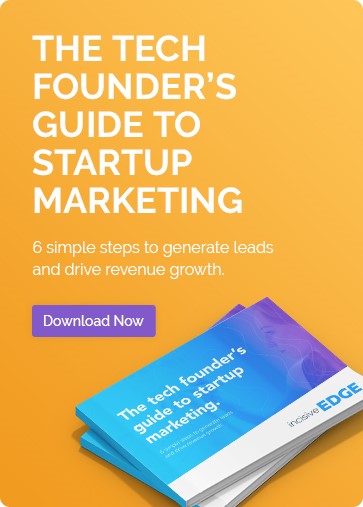In 2023, no inbound marketing strategy is complete without video marketing. The stats speak for themselves as to why this is.
For starters, the much-cited Cisco white Paper – VNI Forecast and Methodology, 2015-2020 – predicts that “Globally, IP video traffic will be 82 percent of all consumer Internet traffic by 2020, up from 70 percent in 2015.”
Other studies, too, reveal the growing usage and consumer demand for video marketing content. Here are a few highlights to chew over:
- YouTube has over 1.3 billion users (FORTUNELORDS), who collectively watch more than 500 million hours of videos on the platform every day (Buffer)
- 82% of Twitter users watch video content on Twitter (insivia)
- 500 million people are watching videos on Facebook daily (tubular insights)
- 60% of all marketers (B2B and B2C) used videos in their social media marketing in 2016, with 73% planning to increase usage going forward (Social Media Examiner)
- 87% of inbound marketing professionals use video marketing (Hubspot)
- 96% of B2B organisations use video marketing, with 73% reporting positive ROI (return on investment) (Hubspot)

(Image source: Hubspot)
Get the (moving) picture?
When it comes to inbound marketing, if there’s one tactic that can no longer be ignored, it’s video marketing.
Check out the following blogs to learn more about Video SEO:
- The Importance of Video Marketing (and How to Get Started)
- How to Quantify SEO ROI: The Best 2023 Guide
- The Dos and Don'ts of B2B SEO: Best Practices for Success
You no doubt know this already. However, like a lot of marketers, you may struggle with getting to grips with video marketing. Indeed, research from Buffer reveals that 83% of marketers say that they’d create more video content if there were no obstacles like time, resources and budget in the way.

(Image source: blog.bufferapp.com)
Of course these obstacles exist – producing content for video marketing requires a certain skillset that not everybody believes they possess. However, that being said, the process is constantly being democratised, with new SaaS solutions like Easy-to-use Tools for Creating Video Marketing Content.
Getting to grips with these tools is essential to be successful at inbound marketing in 2017 and beyond. For, not only is video marketing content what consumers want, but it has huge inbound marketing SEO value as well.
A Guide to Video SEO for Inbound Marketing Content
In video marketing, it's vital to consider both the target audience's needs and preferences for effective search engine optimization (SEO). By implementing content marketing strategies, we can optimize each video's SEO value and enhance the overall site's visibility.
Below we detail how you can do both.
Video Marketing Content Adds Value to Your Site
It most certainly does, and this is the core reason why an inbound marketing strategy should incorporate video marketing in the first place.
Video is perhaps the most engaging type of content that there is. It is often said that a single picture is worth a thousand words – but the fact is that video is worth even more. How much more? Well, according to Forrester Research, one minute of video equates to approximately 1.8 million words of written text. (The 83% of marketers who don’t think they’ve got time to create a 60-second video should consider how long it would take them to pen 1800 blogs at a thousand words a piece.)
Why such a huge figure? Well, research has revealed that 90% of information transmitted to the brain is visual, and those visuals are processed 60,000 times faster than text.

(Image source: infogr.am)
Nice stats – but how do they equate to video marketing adding value to your website?
Research from the IAB in association with UKOM reveals that the average internet user spends just six and half minutes per day reading blogs and news. That equates to only 3.75% of the nearly three hours they spend online every day. We’ve already discussed above the sheer dominance of online video (82% of all IP traffic by 2020). And so, bearing all this in mind, we can see that if we want to convey information in a way that captures and retains user attention, then it’s video marketing that we must turn to.
While written content plays a crucial role in SEO value, the number of website visitors and their on-site engagement are equally important factors. Video marketing, including every blog post and suggested videos, becomes a valuable asset in maximizing SEO potential. It's worth noting that Google owns YouTube, which further emphasizes the significance of incorporating video content to attract and retain a more engaged audience on our websites.
Building Backlinks
Last year, Search Engine Land brought us news confirming what all inbound marketing practitioners have intuitively known for a long, long time – the two most important SEO ranking factors are content and backlinks.
Here’s their Periodic Table of SEO Success Factors so you can see how everything fits together.
(Image source: searchengineland.com)
With links so important to SEO, we need to create content that people want to share and link to, and video marketing content is the stuff.
As with all inbound marketing materials, however, we must remember that the key is to use video marketing to provide education, as only this way will we be able to create those all-important backlinks from it.
Creating engaging, informative, and valuable videos for your target audience can lead to increased shares and backlinks. Both in the B2B and B2C domains, videos are sought after for their ability to deliver concise and clear information. To cater to this demand, we should utilize a video hosting platform to showcase our content on our own website and optimize it for video search. By doing so, we can boost our online presence, foster audience engagement, and achieve organic growth through video marketing.
Just be sure, however, that you embed your video marketing content right into your site, as opposed to linking out to, say, a YouTube page, as it’s your website’s SEO that’s important.
Improving Video SEO
When it comes to improving the SEO of each piece of video marketing content that we publish, there are number of steps to take. We bullet point them here for your convenience:
- Metadata: To improve video indexing by search engines like Google, it's essential to optimize your metadata. This involves using relevant keywords in the video title, description, and thumbnail metadata. Additionally, ensure that your video file names are meaningful, as this can provide a slight boost in visibility.
Furthermore, leveraging the same video on platforms like YouTube search and implementing a video sitemap can enhance discoverability and extend the reach of your videos, making them more accessible to a broader audience. - Consider the thumbnail: The thumbnail that you choose for your video will go a long way towards making people click on it – and more clicks = better SEO. Thumbnails are the stills that are shown in search results next to the video link (examples below).

- Include a transcript: Writing out a full video transcript helps search engines learn more about each piece of video marketing content you produce. This is especially useful in terms of keyword optimisation – another hugely important inbound marketing SEO ranking factor.
- Share and promote on social: All inbound marketing initiatives are backed up by strong social media marketing tactics – and video marketing is no different. Share and promote your videos on social and you’ll generate interest in your brand, enjoy more traffic, and watch your SEO value climb.
- Optimize for page load times: Another important ranking factor is page load times, which Google considers in its algorithm. The reason is that page performances affect user experience – slow times are annoying and cause people to click away. Indeed, 57% of users abandon a site after just 3 seconds of waiting for it to load according to Radware. Your inbound marketing agency will make sure that your videos aren’t slowing things down.
Back to You
Video marketing is not a “nice to have” but a “must have” tactic to keep up your inbound marketing sleeve in 2023 and beyond. In terms of SEO, your video marketing content is amongst the most important at your disposal, and no inbound marketing strategy should be without it.







